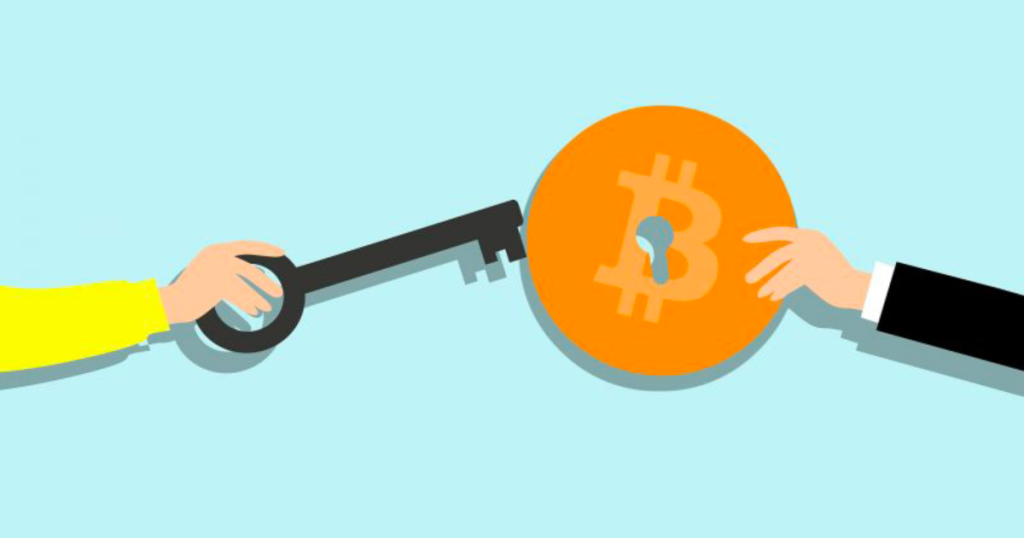If you are into cryptocurrency i am sure that you already heard this famous saying " Not your keys ,not your coins". The purpose of the phrase is to urge crypto users to keep funds in decentralized wallets holding keys in the hands of the user itself. In other words crypto users should not keep funds on the centralized exchanges.
Keeping funds on the centralized exchanges is very risky because they control the funds and withdraw of your funds is only moveable at the will of the exchanges because only they have full access to the funds. In this scenario you dont have keys which is why you dont have control on your funds.
There are several reasons which indicates and urges to keep funds off the centralized exchanges. Centralized Exchanges can freez your funds at anytime without any solid reason. This is something which maybe very shocking for the user keeping funds with the exchanges.
There are several crypto users who complained about different exchanges freezing their funds without any reason. Its better to stay off the exchanges and keep the funds on the decentralized wallet with having full control yourself to your funds. Thats the best way to keep the funds safe.
Centralized Exchanges could be hacked which can lead to lose your funds leaving the users empty hands. There are many examples of centralized exchanges being hacked in the past. A fresh example of this is the lates hack of WazirX Exchange. WazirX is a centralized exchange which claims to be an indian exchange has lot $230 million in a cyber attack on 19 july.
Users have lost millions of dollars into these hacks which are tied to centralized exchanges. According to a rough estimation in combine centralized hacks over $3.3 Billion have been lost to hackers. These are funds of the users who kept their funds on the centralized exchanges.
Centralized exchange owners often found to scam users in the name of hacks. Majority of the funds were not returned to users as of the incomplete investigations or poor law enforcement system in third ranked countries. This is another reason that you should not keep your funds on centralized exchanges.
Now the question arises that where one should keep the funds, the best answer to the question is Decentralized wallets. There are a number of decentralized wallets exist. A few that are top ones and ranked high are Trust wallet and Metamask wallet. These are simple to create and use as well.
While creating decentralized wallets the user needs to save the secret phrase or the keys at a place where no other person can have access to it. The best way to save the keys is to write it on a piece of paper and hide it at a safe place. Make sure you dont copy the secret phrase or keys as your clipboard can be hacked easily these days.
Actually there are two types of decentralized wallets, Software wallets also called hot wallets and hardware wallet also called cold wallets . Metamask and Trust wallets are software wallets. Ledger and Trezor are hardware wallets and they are more safer than software wallets. If you hold a big stake in crypto then it is advised to store your funds in a Hardware wallet.
Thats it for today. Thanks for reading. What do you think about my today's topic? Let me know your thoughts in comment section. In the end i would like to Wish you and your family a happy day ahead. Stay Blessed.
Motivation Dose
Get out of your comfort zone and fight the troubles and hurdles that come your way to success. Success awaits you. Life is beautiful ، live it to the fullest. Dont be hopeless. Stand strong in the ups and downs of life as its part of life. There is always a light behind every dark side.
About Author
@coolguy222 is a crypto trader and content creator on hive blockchain. He also runs a small business of Mobile accessories and Wrist watches. He loves to make new friends.
Posted Using InLeo Alpha

.jpg)
Great post!
I will say that I'm skeptical of the hardware wallets, because we still have to trust the firmware updates that come from the manufacturer, as well as the hardware itself (which I don't believe is open-source).
Most software wallets, on the other hand, are completely open-source. So long as we're careful about installing automatic updates (which could be malicious), we should be okay (maybe wait a few days before installing the updates to make sure there aren't any problems).
There are risks any way you slice it, and it requires a calculated approach.